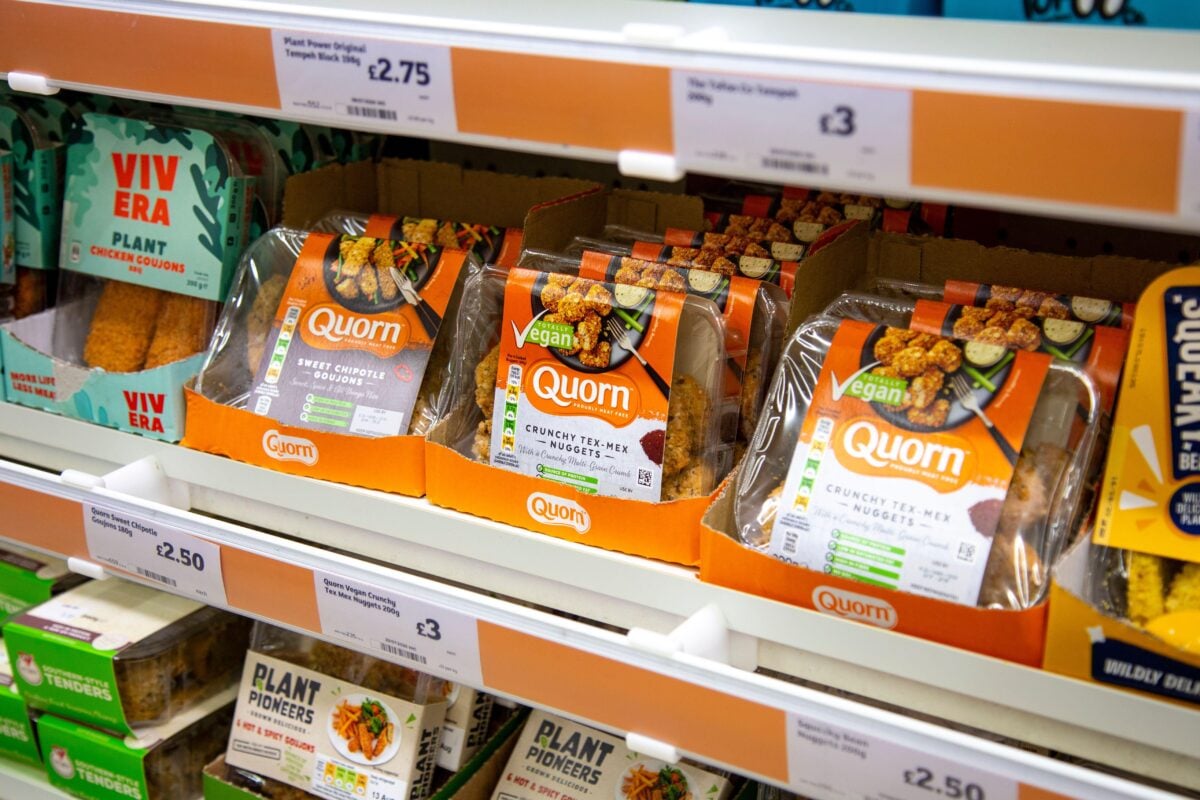Vegetarian brand Quorn has announced that its mycoprotein will soon be used for “blended” meat products.
The brand, which was established in 1985, has been entirely meat-free throughout its existence. It has now announced, however, that its key ingredient will be used alongside real meat in burgers and sausages sold at certain locations in the UK.
Read more: Thailand FDA Proposes Ban on Plant-Based Foods Using Meat And Dairy Labeling
The products will be on offer at select food service operators and within the NHS. Some of Quorn’s existing partners will be taking part in the project. Quorn products sold in supermarkets will not be affected.
The Quorn branding will not be used on the new products. The company has said that, while it sold its mycoprotein to be used with meat, it does not have involvement with creating the finished products.
‘Evolution’ of the business

Currently, the flexitarian market is one of Quorn’s core consumer bases. Flexitarians, who eat a mostly vegetarian diet that occasionally includes meat, make up around 13 percent of the UK population. Now, Quorn is targeting traditional meat-eaters with an aim to help “everyone” reduce meat consumption.
In a statement sent to Plant Based News, Quorn CEO Marco Bertacca said the rise in flexitarianism has led to “a reduction in the overall consumption of meat” in some markets. But, he added, “that reduction is not happening fast enough, and with enough scale to have a meaningful impact.” Quorn claims that blended meat products will help people reduce their meat intake even more, and lead to a greater reduction in meat consumption overall, therefore benefiting the planet.
“Quorn Foods’ role in the past was to help a few people eat no meat,” said Bertacca. “We have now evolved into a company that helps everyone eat less meat – because that’s what the world needs – and we will continue to find new ways to do that.”
The “blended meat” industry
Quorn is not the first company to introduce blended meat products. These products have been hailed by some as a potentially pragmatic way to reduce the number of animals being slaughtered and help mitigate the climate crisis. There is, however, limited evidence on how effective they will be at doing this. Peter Rixon, a spokesperson for plant-based environmental advocacy group Pro Veg, told Plant Based News (PBN) that “it is not clear whether eating blended meat is enough to help mitigate the climate crisis,” adding that the group “supports more research into blended meat until evidence has been shown that it actually leads to a reduction in conventional meat consumption among consumers.” He added that the group is keeping an “open-minded, evidence-based approach.”
Studies have shown that a dramatic decrease in meat consumption is essential for the climate, and some groups have cast doubt on the ability of blended meat to help us get anywhere close to what the planet needs. Moreover, in a world where billions of land animals – as well as trillions of fishes* – are killed for food, blended meat still contributes to this cruelty.
“The consumption of cows, lambs, and pigs needs to plummet by 90 percent if our generation and that of our children are to avert the destructive, life-changing effects of the climate catastrophe – and 100 percent percent if we are to save the planet and prevent animal suffering for a fleeting moment of taste,” Dawn Carr, Vice President of Corporate Projects at animal rights organization PETA, told PBN. She also likened serving blended sausages in hospitals to “putting a plaster on a stab wound,” given that processed red meat is heavily linked to diseases including cancer.
“PETA urges the NHS to choose foods from Quorn’s excellent vegan range, which includes the sensational Greggs vegan sausage roll and KFC’s “chicken” burger, instead,” she added. “No meat is required!”
*While the English language typically refers to multiple fishes as “fish,” we use “fishes” to emphasize their individuality
Read more: Dairy And Oat Blended Milk Sparks Backlash






